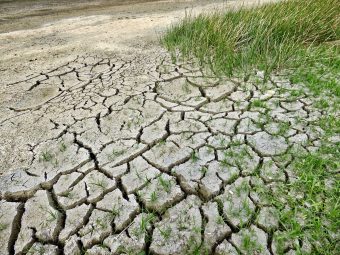
The record-breaking heatwave in parts of the US and Canada at the end of June would have been virtually impossible without the influence of human-caused climate change, according to a rapid attribution analysis by an international team of leading climate scientists. Climate change, caused by greenhouse gas emissions, made the heatwave at least 150 times more likely to happen.
Pacific Northwest areas of the US and Canada saw temperatures that broke records by several degrees, including a new all-time Canadian temperature record of 49.6°C (121.3°F) in the village of Lytton – well above the previous national record of 45°C (113°F). Shortly after setting the record, Lytton was largely destroyed in a wildfire.
North America had its warmest June on record, according to the monthly bulletin from Copernicus Climate Change Service implemented by the European Centre for Medium-Range Weather Forecasts (ECMWF).
Every heatwave occurring today is made more likely and more intense by climate change. To quantify the effect of climate change on these high temperatures, the rapid attribution study analysed the observations and computer simulations to compare the climate as it is today, after about 1.2°C (2.2°F) of global warming since the late 1800s, with the climate of the past, following peer-reviewed methods.
More:
The extreme temperatures experienced were far outside the range of past observed temperatures, making it difficult to quantify exactly how rare the event is in the current climate and would have been without human-caused climate change — but the researchers concluded that it would have been “virtually impossible” without human influence.
The study was conducted by 27 researchers, including scientists from universities and meteorological agencies in Canada, the US, Germany, the Netherlands, Switzerland, France and the UK, as part of the World Weather Attribution group. This is an international collaboration that analyses and communicates the possible influence of climate change on extreme weather events, such as storms, extreme rainfall, heatwaves, cold spells, and droughts.
“What we are seeing is unprecedented. You’re not supposed to break records by four or five degrees Celsius (seven to nine degrees Fahrenheit). This is such an exceptional event that we can’t rule out the possibility that we’re experiencing heat extremes today that we only expected to come at higher levels of global warming,” said Friederike Otto, of the Environmental change Institute at the University of Oxford.
You can read the whole article HERE.
Source: WMO



